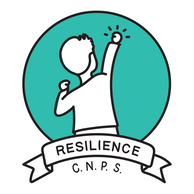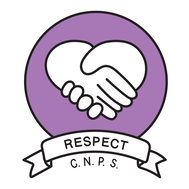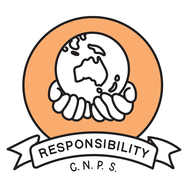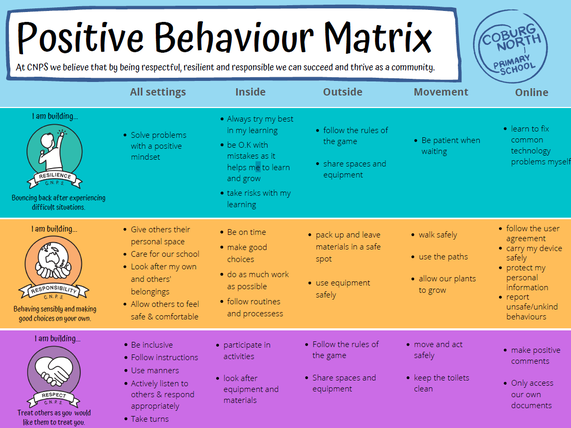School Wide Positive Behaviours
Coburg North Primary School proudly embraces the School Wide Positive Behaviour Support framework to create an environment where our students thrive with their social, emotional and academic learning.
School-Wide Positive Behaviour Support (SWPBS) is a structure that brings together school communities to develop positive, safe, supportive learning cultures. SWPBS assists schools to improve social, emotional, behavioural and academic outcomes for children and young people.
When SWPBS is implemented well, teachers and students have more time to focus on relationships and classroom instruction. Students and staff benefit from:
At the centre of the framework, are our core school values.
School-Wide Positive Behaviour Support (SWPBS) is a structure that brings together school communities to develop positive, safe, supportive learning cultures. SWPBS assists schools to improve social, emotional, behavioural and academic outcomes for children and young people.
When SWPBS is implemented well, teachers and students have more time to focus on relationships and classroom instruction. Students and staff benefit from:
- increased respectful and positive behaviour.
- increased time focused on instruction.
- improved social-emotional wellbeing.
- positive and respectful relationships among students and staff.
- increased adoption of evidence-based instructional practices.
- a predictable learning environment with improved perceptions of safety and increased attendance.
At the centre of the framework, are our core school values.
Coburg North Primary School has implemented a series of Positive Behaviour Matrices, which outline the expected behaviours throughout the school. These behaviours, based on our core values, are explicitly taught to students at every year level during the academic year. Positive behaviour is regularly acknowledged with verbal feedback, school values stickers, postcards and awards.
Responding to Challenging Behaviour
SWPBS helps to prevent challenging behaviour from reoccurring and determine what else the child needs to be successful. Successfully addressing problem behaviours requires more focus on proactive approaches.
Expected and more socially acceptable behaviours are directly taught, regularly practised and followed by frequent positive reinforcement.
If problem behaviour occurs at school, the staff have procedures to follow to address the behaviour.
When behaviour incidents occur, it is important that consequences are suited to the behaviour. Coburg North Primary School uses ‘logical consequences’ that are directly related to the behaviour, with an intention of helping students develop an internal understanding in order to make better choices in the future.
Restorative Practice
When students experience conflict with a member of the school community, Coburg North Primary uses scripted restorative conversations that seek to repair relationships.
Restorative practice is a strategy that seeks to repair relationships that have been damaged, including those damaged through bullying. It does this by bringing about a sense of remorse and restorative action on the part of the offender and forgiveness by the victim. The rationale behind this approach is that when offenders reflect upon their harm to victims:
SWPBS at Home
Teaching behaviours that we expect to see works best when there is consistency across home and school settings. SWPBS is an approach to help all students learn to self-manage behaviour. Family involvement is a key feature and important in all aspects of SWPBS. A strong partnership between school and family is important because when families are involved, outcomes for students are better. You can be involved in SWPBS in many ways by:
• reading materials distributed by the school via Compass.
• being a role model of positive behaviours.
• verbally acknowledging and recognising when your child meets expected behaviours.
• responding consistently and with meaningful consequences when problem behaviour occurs.
For further information please see the Coburg North Primary School Student Engagement and Wellbeing Policy.
SWPBS helps to prevent challenging behaviour from reoccurring and determine what else the child needs to be successful. Successfully addressing problem behaviours requires more focus on proactive approaches.
Expected and more socially acceptable behaviours are directly taught, regularly practised and followed by frequent positive reinforcement.
If problem behaviour occurs at school, the staff have procedures to follow to address the behaviour.
When behaviour incidents occur, it is important that consequences are suited to the behaviour. Coburg North Primary School uses ‘logical consequences’ that are directly related to the behaviour, with an intention of helping students develop an internal understanding in order to make better choices in the future.
Restorative Practice
When students experience conflict with a member of the school community, Coburg North Primary uses scripted restorative conversations that seek to repair relationships.
Restorative practice is a strategy that seeks to repair relationships that have been damaged, including those damaged through bullying. It does this by bringing about a sense of remorse and restorative action on the part of the offender and forgiveness by the victim. The rationale behind this approach is that when offenders reflect upon their harm to victims:
- They become remorseful and act restoratively.
- Practitioners can focus on the unacceptable behaviour of offenders rather than their moral character.
- This can lead to healthier interpersonal relations among members of the school community and more effective learning.
SWPBS at Home
Teaching behaviours that we expect to see works best when there is consistency across home and school settings. SWPBS is an approach to help all students learn to self-manage behaviour. Family involvement is a key feature and important in all aspects of SWPBS. A strong partnership between school and family is important because when families are involved, outcomes for students are better. You can be involved in SWPBS in many ways by:
• reading materials distributed by the school via Compass.
• being a role model of positive behaviours.
• verbally acknowledging and recognising when your child meets expected behaviours.
• responding consistently and with meaningful consequences when problem behaviour occurs.
For further information please see the Coburg North Primary School Student Engagement and Wellbeing Policy.








